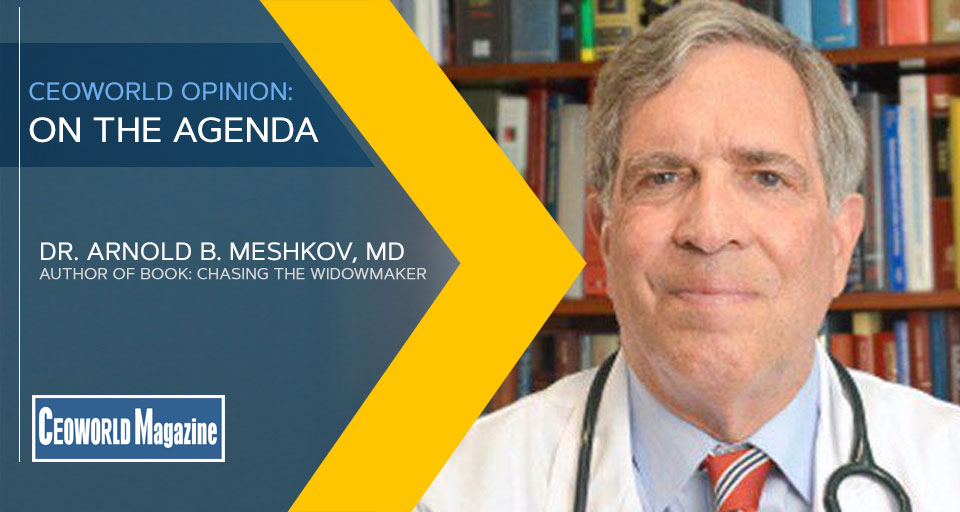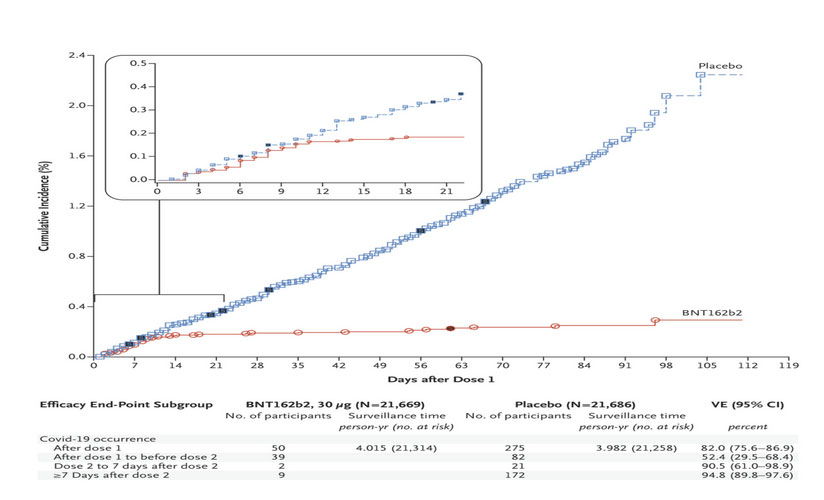THE INDIVIDUAL AND THE REST OF US – COVID CONFLICTS

No one is certain of the long-term effects of the past 18 + months: more working at home, changes in wages, real estate prices, empty shopping malls, just to mention a few. CEOs will be faced with the challenge of doing what’s best for their company, their employees, their patrons, and the nation, in the face of divisiveness and distrust. Their responsibility stretches beyond business, especially in the medical field. But from the medical perspective there are two challenges that will confront all business owners – vaccination and possible long-term effects of a previous COVID infection.
As a physician, to me the most stunning aspect of this worldwide horror has been the refusal to understand and accept the medical science that has started the process of pulling humanity out of this most severe crisis. The truly remarkable work of the scientists at Pfizer and Moderna, as well as the other companies that are actively working on vaccines and intravenous and now oral medications to thwart this incredibly infectious COVID-19 virus will, soon, generate several well-deserved Nobel Prizes.
I just love this slide from the New England Journal of Medicine, the world’s premier medical journal. This graphic demonstration of the effectiveness of this RNA vaccine can be understood even by those who aren’t familiar with science. The entire world should have cheered loudly from inside their homes.
One of the treasured shibboleths of modern life in the Western world is that of individual freedom. What a very special feature of the last few centuries this has become, a concept that sprang from the American and then the French Revolutions of the 18th century. Almost all Americans know that wonderful phrase from the Declaration of Independence – “life, liberty, and the pursuit of happiness.”
But aren’t there limits to individual freedom? We all know that the First Amendment of the United States’ Constitution Bill of Rights guarantees the right of free speech, including speech that might be hateful to many or use horrible offensive language (see recent Supreme Court decision about the teenager who didn’t make her cheerleading squad and took to social media to complain in a foul manner). We are also aware of the limits of free speech, the “can’t yell fire in a crowded theater” example.
I have been astonished by the reaction of some of my patients when I ask them about their COVID vaccination status – reactions of downright anger and statements about “experimental drugs” and “altering my DNA.” The term “Vaccine Hesitancy” is really a euphemism – this is “Vaccine Resistance and Hostility.”
This problem has surfaced in many parts of the United States, including stunningly at the huge Methodist Hospital in Houston, Texas, where over 100 employees who were informed by the CEO of the corporation that they would be fired if they did not get vaccinated, took their case to court. Their legal argument centered on the fact that the US Food and Drug Administration approval to use the vaccines was on an “expedited” and not “fully approved.” The plaintiffs also claimed that by being forced to be vaccinated they were participating in a trial against their will, even going so far as to equate this mandate from their employer to medical experimentation in Nazi concentration camps!
The Federal court judge in Texas summarily rejected these arguments, noting that the hospital was just trying to save lives and not give employees the virus. He also noted that employees had the right to refuse the vaccination but that then they would need to work elsewhere, also writing in his opinion that, “Every employment includes limits on the worker’s behavior in exchange for his remuneration.”
As the United States economy resumes, employers and human resource departments will be challenged by mostly younger employees who are primary demographics refusing to vaccinate. Need to find a hyperlink to this study. How employers will respond to this problem will be varied, with some companies taking a “hard line” and insisting that most work again be done in the office, and others allowing the unvaccinated to work at home, or making special social distancing and test requirements in the office. In some cases, similar to that of the Methodist Hospital, CEOs may need to create certain restrictions to make workplaces safe for their employees as well as their patrons. With both the mental and physical wellbeing of their employees at stake and a myriad of different perspectives and comfort levels when it comes to vaccination, masking, and hybrid workplaces, how CEOs handle this will greatly affect their company culture.
There may be a second major problem. There is little doubt that a COVID infection, especially one that led to hospitalization, can create damage to the lungs, and perhaps the heart and nervous system. Although one of the “cardinal” symptoms of COVID infection is loss of taste and smell, senses that are really part of the central nervous system, the research has found very little virus in the brains of those unfortunates who died of COVID. Nonetheless, there are people who have chronic neurologic and psychiatric symptoms after a bout with COVID, symptoms that are often difficult to quantify by any current testing procedures. Employees lives and livelihoods are at stake, both of which hinging entirely on a CEO’s decisions as the business world reinvents what it means to function “normally.”
Because of the long-term effects of COVID, human resource departments should require documentation of medical evaluation of employees who were ill prior to their returning to work. This will help establish a “baseline “of medical status for these people, so that future problems are not immediately ascribed to their return to work and in some cases their “forced” vaccination. From there, the choices made with the wellbeing of everyone at the company in mind moving forward will be easier to navigate, making for a smoother transition into this new phase in our culture and our lives. This will look different for each environment. Health professionals, like those at the Methodist Hospital, will need to hold their employees to higher standards, as their employees are continually in direct contact with the victims of the COVID-19 virus. The role of any CEO, regardless of field, in this time of crisis will determine the wellbeing and future of the nation.
Individual freedom of choice is engrained in our culture, especially in the United States. But in times of crisis, when our entire country is threatened, more of us need to put our individual fears aside and realize that the path forward is for most of us to be vaccinated, so that we do not spread this deadly virus to our co-workers, friends, and family. That is our individual responsibility, a task that helps protect our individual freedom of movement, socialization, and a return to life as we remember it prior to 2020. With CEOs at the helm as transitions are crucially necessary, it is their responsibility to make the correct decisions for their employees and guide them through the uncertainty. Let’s hope that cooler heads will prevail in the next year.
REFERENCES
Epstein Becker & Green, P.C. National Law Review, Volume XI, Number 175 June 24, 2021
Polack F, Thomas S et al. Safety and efficacy of the BNT162b2 mRNA Covid-19 vaccine. New England Journal of Medicine 2020 383:2603-2615.
Robertson, E, Reeve, K et al. Predictors of COVID-19 vaccine hesitancy in the UK household longitudinal study. Brain, Behavior, and Immunity 2021 94: 41-50.
Rosner, C, Genovese, L et al. Myocarditis temporally associated with COVID-19 vaccination. 10.1161/CirculationAHA.121.05589
Sanders. L. Scientists probe COVID-19 brains. Science News June 5, 2021 10-11
Written by Dr Arnold B. Meshkov, MD, MBA, FACC, FASE.
Bring the best of the CEOWORLD magazine's global journalism to audiences in the United States and around the world. - Add CEOWORLD magazine to your Google News feed.
Follow CEOWORLD magazine headlines on: Google News, LinkedIn, Twitter, and Facebook.
Copyright 2025 The CEOWORLD magazine. All rights reserved. This material (and any extract from it) must not be copied, redistributed or placed on any website, without CEOWORLD magazine' prior written consent. For media queries, please contact: info@ceoworld.biz









